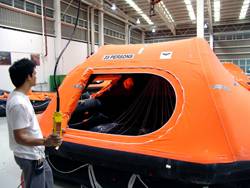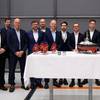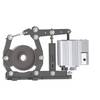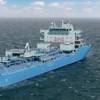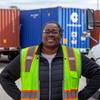VIKING Cuts no Corners on Safety
Keeping people and business safe. That’s the strategy for VIKING, also when it comes to workplaces, no matter where they are in the world.
Esbjerg, Denmark, August 23, 2011 – Marine and fire safety equipment leader VIKING Life-Saving Equipment reports that its Laem Chabang, Thailand production facilities were recently OHSAS (Occupation Health and Safety Assessment Series) 18001-certified. This brings the company’s Far East operations up to the same, exacting standards for workplace environment that are common practice in VIKING.
VIKING Thailand has worked in compliance with the ISO standards since the production facilities in Thailand were established in 2002. The OHSAS 18001 certification is therefore the natural next step in the company’s continuous focus on maintaining a safe and healthy workplace environment.
The aim of the internationally recognized OHSAS 18001 certification is to help organizations to control occupational health and safety risks. It was developed in response to widespread demand for a recognized standard against which to be certified and assessed.
Achieving and maintaining OHSAS 18001 certification is no easy task. It demands such elements as continuous improvement, policies and targets for work environment and safety, carefully mapped work stations and procedures to improve work environment and safety, the extended use of safety equipment and so on. Importantly, the certification requires the commitment of top management – something that is already well entrenched at VIKING’s global headquarters in Esbjerg, Denmark.
Contrary to popular belief, Thailand’s workplace safety legislation is among the world’s most stringent. In fact, Thai legislation is even stricter than that of Scandinavian countries in a number of aspects. Government support is also provided in the form of paid consultant assistance.
For VIKING executive vice president Allan Østergaard, the OHSAS 18001 certification for the company’s Thai facility is a natural part of the VIKING way of doing business. “All VIKING production facilities around the world must live up to the same, consistent safety standards. As a global organization, our people need to feel secure and confident about their own workplaces and those they visit in other regions as part of their work.”
Beyond benefits for worker health and job satisfaction, Mr. Østergaard also points out the business advantages of such global policies, where broad standardization of equipment and procedures can reduce training, speed up workflows and ensure consistent quality of manufacturing. “VIKING is a modern employer, founded upon human values, so disregarding workplace safety or quality standards when outsourcing to the Far East would be unthinkable for us.”



